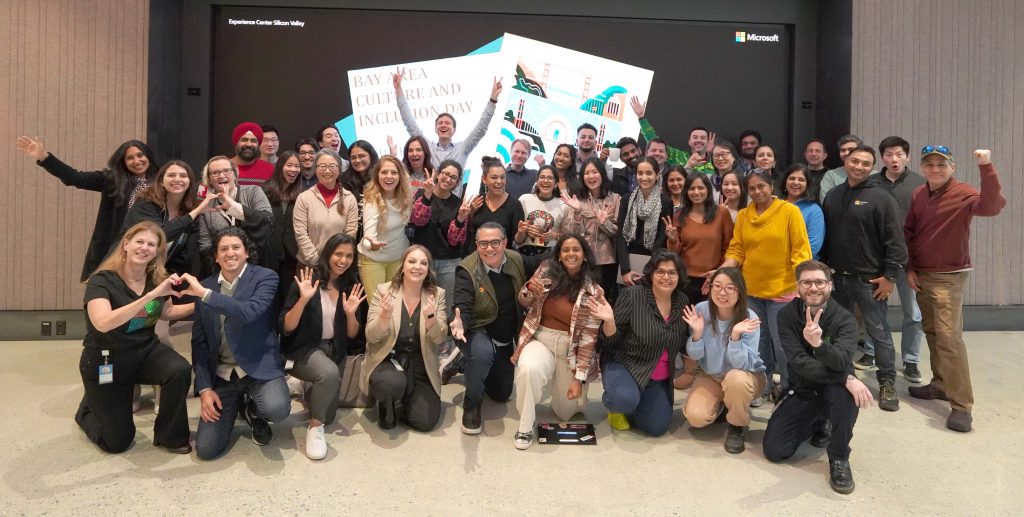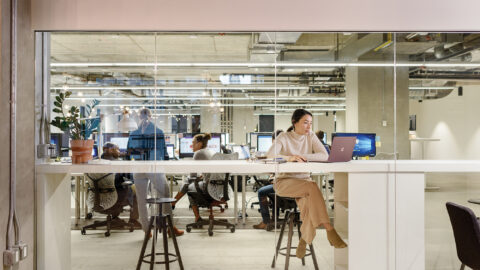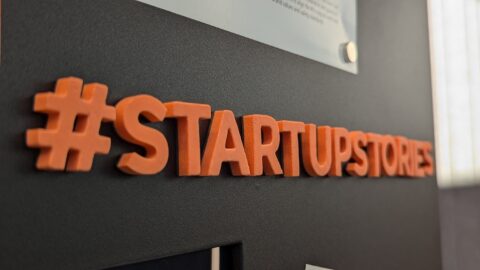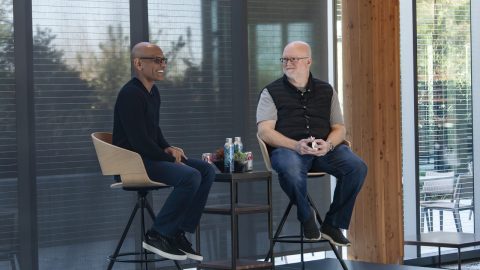Embracing allyship: Microsoft Bay Area’s Culture and Inclusion Day highlights
Our ongoing focus on diversity and inclusion is directly tied to our inherently inclusive mission—to empower every person and every organization on the planet to achieve more, enabling us to innovate in the era of AI.
The Bay Area Culture and Inclusion Day gave hundreds of employees around the local area an opportunity to connect in person at Microsoft’s Silicon Valley Campus. It was a chance to deepen their understanding of allyship, engage in continuous learning and development, and reaffirm their commitment to fostering an inclusive workplace where everyone can thrive.
In the age of AI, we face both unprecedented opportunities and significant expectations for creating an inclusive AI experience. Our goal is for AI to be culturally competent, offering relevant content that enables authenticity and productivity while enhancing collaborative business outcomes.

A highlight of the day, hosted by Microsoft’s Experience Center—Silicon Valley, featured immersive learning and development sessions showcasing our latest innovations in accessibility across our offerings.
“Diversity and inclusion are fundamental to how we build products, serve customers, and collaborate as a team,” said Annie Pearl, corporate vice president, Azure Experiences & Ecosystems.
Cultivating allyship
Allyship at Microsoft is more than a concept; it’s a dedicated practice that aligns with our core values to support one another. This commitment creates an environment where we can embrace and respect our differences.
How do you create a culture of allyship?
Cathy Campbell, a practice leader for Microsoft’s Talent, Diversity, Inclusion, and Learning team, along with Carolina Bogado Gomez, human resources lead for Microsoft Bay Area, engaged employees in a discussion about building an inclusive culture and practicing allyship.
Cathy emphasized that allyship is not an inherent trait but a deliberate choice to support others and foster inclusion and respect. It requires continuous effort and self-reflection.
“Allyship involves taking action,” Cathy explained. “It varies depending on the scenario and when you decide to act as an ally.”
Microsoft’s 2024 Global Diversity & Inclusion Report underscores that true allyship is dynamic and contextual, demanding an adaptive approach to champion inclusivity across different circumstances and communities.
The importance of courage in allyship
One of the most challenging yet essential aspects of allyship is demonstrating courage. As Cathy highlighted, courage is a critical inclusive capability at Microsoft. It involves finding opportunities to share thoughts, ideas, and opinions, even when it might be uncomfortable.
Creating an inclusive culture requires building a foundation of trust. Carolina emphasized that one powerful way to do that is to point out and reinforce positive behaviors. This can encourage others to replicate positive actions, she said.
“Allyship is about making conscious choices to support and uplift others, create safe spaces, and practice empathy to foster an inclusive environment,” she said.
Women at Microsoft: Branding and career empowerment
The day also included a leadership development session led by Women at Microsoft Bay Area on the topics of branding and networking.
Carol Scott, senior director, Software and Development Platforms, and customer success leader, focused on helping audience members identify how they contribute to the organization and how they’re seen by peers and leadership.
She led the audience through an exercise of identifying what they’re most proud of at work, naming a skill or talent that colleagues rely on them for, and thinking about a career highlight to share. All of that can be used when preparing for a job interview or writing a LinkedIn profile, she said.
Building a culture of accessibility beyond Microsoft: An immersive experience
Accessibility is core to Microsoft’s mission, and our products are built with inclusive design principles as a foundation. This objective extends beyond Microsoft; it addresses a societal need and a fundamental right.
To deepen participants’ understanding of the company’s emphasis on accessibility, the Bay Area Culture and Inclusion Day included an immersive learning experience at the Experience Center—Silicon Valley.
John Payes, senior director of the Experience Center, and his team members led employees through exhibits focused on Copilot and AI innovation, with a particular focus on how the technology is enhancing accessibility.
He encouraged employees to take an active role in building an inclusive culture where everyone can be their true selves at work and in demonstrating customer obsession to make the difference.









